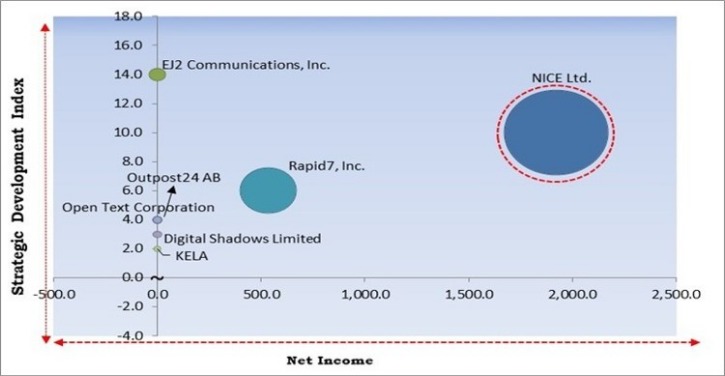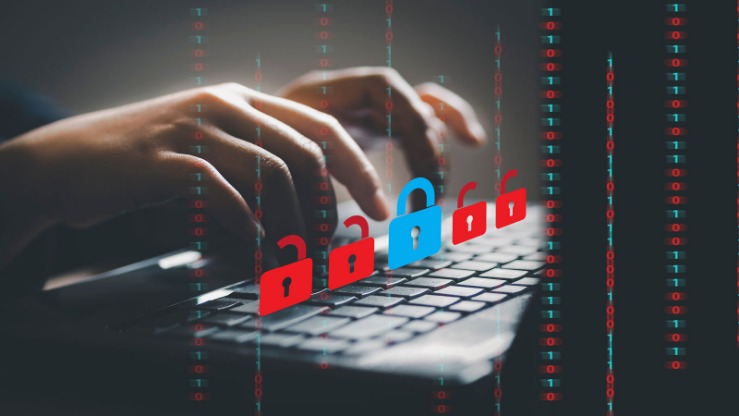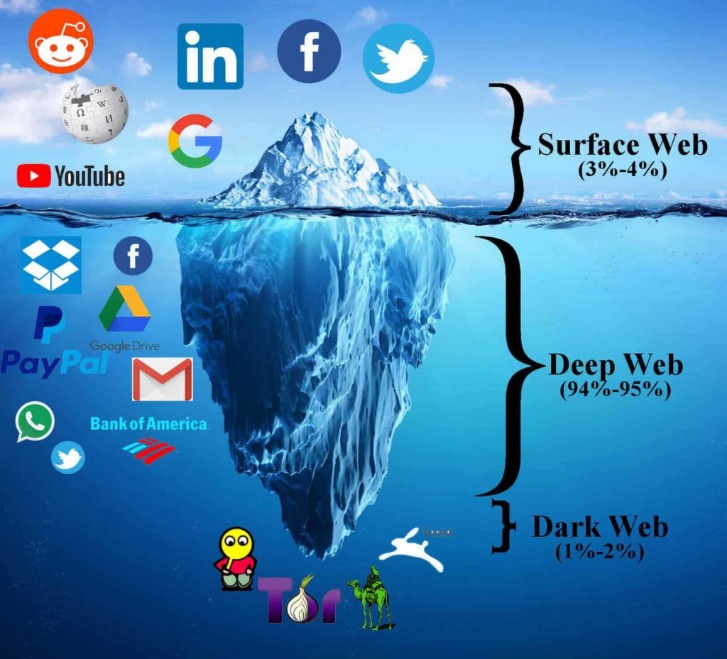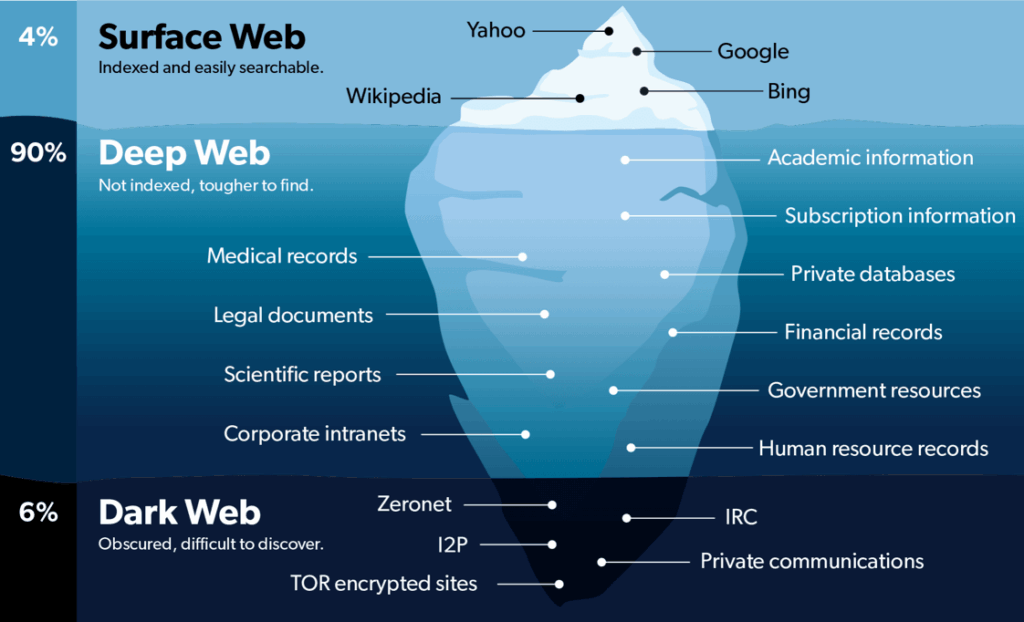Overview of Dark Web Markets
The dark web markets are a hidden component of the internet that operate beyond the reach of traditional search engines and standard online browsing. These markets facilitate the anonymous exchange of goods and services, often involving items that are illegal or heavily regulated. Due to their clandestine nature, accessing and understanding dark web markets requires specific tools and precautions. They serve as a hub for various transactions, from illicit commodities to hard-to-find digital assets, making them a significant aspect of cyber underground activity. For those interested in exploring this cryptic online realm, you can visit a notable dark web marketplace for research purposes.
Definition and Functionality of Dark Web Markets
The dark web markets are clandestine online platforms that operate within the hidden layers of the internet, often associated with illicit activities and the exchange of illegal goods and services. These markets provide a space where vendors and buyers can connect anonymously, utilizing encryption tools and cryptocurrencies to maintain privacy and security. The primary purpose of these marketplaces is to facilitate transactions that are typically prohibited or heavily regulated in the conventional economy.
Dark web markets function through a decentralized and anonymous network, making it difficult for authorities to track or shut down operations easily. Users access these platforms via specialized software that anonymizes their identity and location, ensuring confidentiality. Within these markets, a variety of products and services are offered, including illegal drugs, counterfeit documents, stolen data, weapons, and hacking tools. Transaction processes are usually conducted in cryptocurrencies like Bitcoin, which helps preserve users’ anonymity and complicates efforts to trace financial flows.
The operational nature of dark web markets relies on their ability to foster trust and security among participants despite the illegal or risky nature of transactions. Features such as user reviews, escrow services, and secure communication channels are implemented to protect both buyers and sellers. While these markets serve as hubs for illegal trade, they also expose vulnerabilities, including scams and law enforcement crackdowns, reflecting the ongoing cat-and-mouse game between regulatory agencies and the operators of these secret marketplaces.
Common Types of Products and Services Offered
The dark web markets are hidden online platforms that operate on the dark web, providing a marketplace environment for a variety of products and services. These markets are designed to facilitate anonymous transactions, often using cryptocurrencies to help conceal the identities of buyers and sellers. Accessed through specialized browsers, such as Tor, these markets are generally not accessible through standard web browsers and are frequently targeted by law enforcement agencies due to their association with illegal activities.
Within these marketplaces, a wide range of products and services are offered. Common items include illicit drugs, counterfeit currencies, stolen data, and hacking tools. Additionally, clients can find services such as hacking, hacking-for-hire, illegal gambling, and even illicit firearms sales. The availability of such products and services makes dark web markets significant players in the underground economy, raising concerns about cybersecurity and criminal activity worldwide.
Despite their notoriety, not all transactions on dark web markets are illegal; some users utilize these platforms for privacy reasons or to avoid censorship. However, the prevalence of illegal goods and services underscores the importance for authorities and cybersecurity professionals to monitor and understand these platforms to curb criminal activities and protect digital security.
Differences Between Legal and Illegal Markets
The dark web markets are online platforms hosted on the dark web that facilitate the buying and selling of a wide range of goods and services. These markets operate in hidden parts of the internet, accessible only with special software such as Tor, which ensures user anonymity and data encryption. While some of these markets are used for legitimate purposes, many are associated with illegal activities, including drug trafficking, weapons sales, and the exchange of stolen data.
Understanding the differences between legal and illegal markets on the dark web is essential. Legal markets on the dark web often focus on privacy-protecting services, secure communications, and platforms for sensitive health or political information, operating within the bounds of the law. In contrast, illegal markets typically engage in activities that violate laws, such as selling controlled substances, stolen financial information, or counterfeit documents. These illegal markets often employ sophisticated security measures to evade law enforcement detection, making them particularly challenging to shut down.

The existence of dark web markets highlights the complex nature of online commerce, where the anonymity provided by the dark web enables a diverse array of transactions. While legal markets aim to provide privacy and security for legitimate purposes, illegal markets pose significant risks to public safety and security. Continued efforts are necessary to monitor and regulate these online spaces, distinguishing lawful activities from unlawful ones.
Popular Dark Web Marketplaces
Dark web marketplaces have gained significant notoriety as platforms where a wide range of goods and services are traded anonymously. These hidden segments of the internet operate outside the reach of conventional search engines and law enforcement, providing a space for both legal and illicit transactions. Understanding the landscape of popular dark web markets is crucial for awareness and security considerations. Among the various options available, some platforms have established themselves as leading destinations for users seeking anonymity and diverse offerings. Exploring these marketplaces reveals insight into the complex and often clandestine economy operating beneath the surface of the internet.
Notable Markets and Their Features
The dark web hosts a variety of marketplaces that facilitate the exchange of goods and services outside the reach of conventional law enforcement. These platforms often operate using sophisticated encryption and anonymity features to protect both buyers and sellers, making them popular for numerous illicit activities. Among the most well-known dark web markets, some have gained notoriety for their extensive product listings, user-friendly interfaces, and robust security measures.
One prominent marketplace is known for its broad range of offerings, including electronics, pharmaceuticals, and digital goods. It employs multi-layered security protocols and escrow services to ensure transaction safety and user trust. Another notable platform specializes primarily in digital currencies and cryptocurrencies, providing a secure environment for financial exchanges that require high privacy standards. Such markets typically implement rigorous vetting processes for vendors and maintain active moderation to prevent scams and fraud.
These marketplaces often feature advanced search functions, categorization systems, and feedback mechanisms to help users make informed purchasing decisions. Community forums and ratings enhance transparency and foster trust among users, despite the inherent risks associated with using dark web markets. While law enforcement continuously seeks to crack down on these operations, many ripple with resilience by adapting quickly to new security techniques and decentralization models.

In summary, dark web markets are diverse platforms with varying focuses, security features, and user experiences, serving as hubs for a range of activities. Their presence highlights both the technical ingenuity behind their operation and the ongoing challenges faced by authorities in regulating such anonymous networks.
Market Lifecycle: Launch, Operation, and Closure
Dark web marketplaces are online platforms that facilitate the exchange of goods and services, often operating outside the bounds of legal regulations. These markets have gained notoriety for their anonymous nature, enabling activities that range from legitimate transactions to illicit activities. Understanding the lifecycle of a dark web market—from launch through operation to eventual closure—provides insight into how these platforms evolve and impact the digital underground economy.
The launch of a dark web marketplace typically involves meticulous planning and community-building efforts. Developers and administrators create secure and anonymous infrastructures, often utilizing encryption and TOR networks to mask their identities and locations. Once the platform is operational, initial listings are added, and the marketplace begins attracting users, vendors, and buyers. Successful launches depend on establishing trust through reputation systems, secure payment methods, and effective moderation.
During its operational phase, a dark web marketplace may experience rapid growth as it gains recognition among its target community. Active management is crucial to maintain security, prevent scams, and ensure reliable transaction processes. These marketplaces often implement escrow services, dispute resolution, and user verification to foster trust and facilitate smooth commerce. However, they are also vulnerable to law enforcement actions, hacking attempts, or internal betrayals, which can significantly impact their stability.
The closure of a dark web marketplace may occur for several reasons, including law enforcement raids, internal conflicts, or the voluntary decision of administrators to shut down. When a market shuts down, actors involved often try to mitigate damage by removing listings and warning users to withdraw their funds. In some cases, marketplaces rebrand or move to different networks, aiming to evade detection and continue operations under new identities. The lifecycle of a dark web market reflects a continual balance between clandestine operation and external pressures designed to dismantle these platforms.
Accessing Dark Web Markets Safely
Accessing dark web markets requires careful preparation and awareness of potential risks involved. These hidden online spaces host a variety of services and products, often involving sensitive or illegal material. Navigating the dark web securely involves understanding the necessary tools, such as specialized browsers and security measures, to protect your identity and data. It is essential to stay informed about best practices to minimize exposure to scams, malware, and law enforcement interventions. For those interested in exploring this environment responsibly, starting with reputable dark web marketplaces can provide a foundation for safer interactions, provided that all precautions are observed and legal boundaries are respected.
Recommended Tools and Browser Configurations
Accessing dark web markets requires careful preparation and awareness of the risks involved. These markets operate on the dark web, an area of the internet that is accessible only through specialized tools and configurations designed to enhance anonymity and security. Ensuring your safety while exploring this part of the internet involves using reputable tools and adopting specific browser settings that minimize exposure to cyber threats and legal issues.
One of the most essential tools for safely accessing dark web markets is a privacy-focused browser, such as Tor Browser. Tor encrypts your internet traffic and routes it through multiple volunteer nodes, concealing your IP address and preventing tracking. When configuring Tor Browser for dark web access, it is advisable to disable JavaScript by default, as it can be exploited to identify users. Additionally, avoid installing plugins or extensions, which can compromise anonymity. Adjust security settings to the highest level for enhanced protection.
Complementing the browser, utilizing a reliable Virtual Private Network (VPN) adds an extra layer of security by encrypting all internet traffic between your device and the VPN server. This prevents even the Tor network from revealing your original IP address, providing greater anonymity. Always choose a reputable VPN provider with a strict no-logs policy and strong encryption standards. Remember to connect to the VPN before launching Tor Browser to maximize your privacy.
Other recommended tools include security-oriented operating systems such as Tails or Whonix, which are designed specifically for anonymous browsing and secure communication. These systems prevent data leaks, avoid persistent storage, and route all traffic through the Tor network by default. When accessing dark web markets, practice cautious behavior by avoiding personal details, using temporary or anonymous email addresses, and refraining from downloading files that could harbor malware.
By combining secure browser configurations with trusted tools like VPNs and specialized operating systems, users can significantly reduce risks associated with browsing dark web markets. Staying informed about the best privacy practices and maintaining vigilant online behavior are crucial steps toward ensuring safety while exploring this hidden part of the internet.
Implementing Privacy Measures (VPNs, Tor, etc.)
Accessing dark web markets requires careful attention to privacy and security measures to protect your identity and personal information. These markets often exist on the hidden part of the internet, accessible through specialized tools, which can expose users to risks if proper precautions are not taken. Implementing effective privacy measures can significantly reduce the chance of detection or data compromise while exploring these platforms.
One of the primary tools used for accessing dark web markets safely is a Virtual Private Network (VPN). A robust VPN encrypts your internet traffic and masks your IP address, making it difficult for outsiders to track your online activities. When combined with the Tor network, which anonymizes your browsing by routing traffic through multiple servers, users can achieve a higher level of privacy. However, it’s crucial to select a reputable VPN provider that does not keep logs and has a strong commitment to privacy.
To securely access dark web markets, follow these essential steps:
- Install and configure a trusted VPN service before connecting to the internet.
- Download and set up the Tor browser, ensuring it is up to date to benefit from the latest security patches.
- Connect to your VPN first, then open the Tor browser to access hidden services anonymously.
- Avoid revealing personal information or using identifiable accounts while browsing or transacting on dark web markets.
- Use secure, unique passwords and consider employing additional privacy tools such as encrypted messaging apps for communication.
By combining these tools and best practices, individuals can navigate dark web markets with greater safety and preserve their privacy. Remember, engaging with these markets inherently involves risks, and maintaining caution and awareness is essential for protecting oneself while exploring this concealed section of the internet.
Tips for Safe Navigation and Avoiding Scams
Exploring dark web markets can be intriguing, but it requires careful navigation to ensure safety and security. These hidden parts of the internet host a variety of illegal and legitimate transactions, making it essential for users to exercise caution. Understanding how to access these markets securely involves thorough preparation and awareness of potential risks.
First and foremost, securing your anonymity is crucial. Use a reputable privacy-focused browser, such as Tor, to access dark web markets. This helps mask your IP address and encrypt your internet traffic, reducing the chances of being tracked. Avoid using personal information or logging into sensitive accounts while browsing these markets to prevent exposing your identity.
Additionally, invest in reliable security measures, including updated antivirus software and strong, unique passwords. Be wary of phishing attempts, scams, and counterfeit marketplaces that aim to deceive users. Always verify the authenticity of the website and the reputation of the vendors before making any transactions. Reading reviews and user feedback can help gauge reliability and reputation.
Another key aspect is avoiding illegal content and activities, as engaging or attempting to access such items can lead to severe legal consequences. Stick to legal and ethical transactions, and be cautious of offers that seem too good to be true, as they often are. Remember, scams are prevalent in dark web markets, so never send money without thorough verification, and use escrow services if available.
Finally, maintain a cautious mindset and continuously stay informed about new security practices and risks associated with dark web navigation. By following these tips, you can enhance your safety while exploring dark web markets, ensuring you avoid scams and protect your personal information.
Market Security and Anonymity
Market security and anonymity are critical aspects when navigating the complex landscape of digital marketplaces, especially on the dark web. These markets often facilitate the exchange of goods and services that are otherwise difficult to access through conventional means. Ensuring robust security measures and maintaining user anonymity are essential to protect participants from legal repercussions and cyber threats. In particular, dark web markets rely heavily on encrypted connections and privacy-centric technologies to safeguard transactions and user identities, fostering a space where both buyers and sellers can operate with a degree of confidentiality. Exploring the infrastructure of these markets reveals sophisticated methods designed to preserve anonymity while combating fraud and malicious activities. For example, accessing a well-known dark web market can be done through secure and hidden networks like the Tor network, which helps mask IP addresses and locations. For those interested in understanding or exploring these markets further, it is advisable to use trusted links and ensure proper security practices to mitigate potential risks associated with dark web activities.
Technologies Enabling Market Privacy (Encryption, Encryption Protocols)
Market security and anonymity are critical components for various online marketplaces, especially those operating within the dark web. These markets prioritize protecting user identities and transaction confidentiality to ensure safety from surveillance and potential legal repercussions. To achieve such security, advanced technologies like encryption and specialized protocols are employed, enabling secure and private exchanges of information and value.
Encryption is a fundamental tool used to safeguard data in transit and at rest. By converting readable information into an unreadable format through complex algorithms, encryption ensures that only authorized parties with the correct keys can access the original data. This process is vital for maintaining confidentiality within dark web markets, where sensitive information such as user identities, transaction details, and market operations are routinely transmitted.
Various encryption protocols further enhance security levels by establishing secure communication channels. Protocols like TLS (Transport Layer Security) are widely used to create encrypted links during data exchanges, preventing interception and tampering by malicious actors. Additionally, end-to-end encryption technologies are often implemented in messaging and transaction systems, ensuring that data remains private throughout its journey across the network.
Dark web markets, which facilitate anonymous trading of goods and services, heavily rely on these encryption technologies to protect both buyers and sellers. Such markets typically operate over hidden networks, utilizing access methods that conceal user identities and locations. Moreover, cryptographic techniques like digital signatures and zero-knowledge proofs contribute to verifying transactions and identities without revealing sensitive information, thereby maintaining the privacy and integrity of the market ecosystem.
Ultimately, the combination of robust encryption and secure protocols forms the backbone of market security and anonymity on the dark web. These technologies help sustain a clandestine environment where participants can operate with minimized risks of exposure, surveillance, and malicious interference, underscoring their importance in the landscape of digital privacy and secure online commerce.
Risks of Market Hacks and Data Breaches
Dark web markets operate in the shadowy corners of the internet, providing platforms for buying and selling a wide range of goods and services often outside legal boundaries. One of the critical concerns associated with these markets is the emphasis on market security and anonymity. Participants utilize various encryption methods and anonymizing tools like Tor to conceal their identities, aiming to maintain privacy and reduce risks of detection. While this layer of anonymity is essential for safeguarding users from surveillance and potential repercussions, it also creates vulnerabilities that can be exploited by malicious actors.
The inherent risks of market hacks and data breaches in dark web markets pose significant threats to user security and the integrity of these platforms. Hackers often target these markets to steal funds, customer data, or to compromise the marketplace’s infrastructure. Breaches can lead to the exposure of sensitive information, including transaction histories and personal details, which can be exploited for blackmail, financial fraud, or law enforcement investigations. Because these environments operate largely outside the legal framework, identifying and recovering from such breaches can be challenging, resulting in severe financial and reputational damage for users and operators alike.

Maintaining robust security measures and ensuring transaction privacy remain paramount to mitigating these risks. Participants and operators in dark web markets must continuously improve their security protocols, including multi-factor authentication, encryption, and vigilance against phishing attacks. Despite these efforts, the volatile nature of these environments ensures that threats of hacking and data leaks persist, highlighting the importance of users exercising caution and awareness. Overall, while dark web markets prioritize anonymity and security, they remain vulnerable to significant risks that can compromise their integrity and the safety of their users.
Best Practices for Maintaining Anonymity
Ensuring security and maintaining anonymity are critical concerns when navigating dark web markets. These platforms often involve sensitive transactions and exchanges of information, making it essential for users to adopt best practices to protect their identity and digital assets. Effective strategies help mitigate risks such as hacking, data leaks, and legal scrutiny, which are prevalent in dark web environments.
One of the fundamental measures for market security and anonymity involves using secure communication channels. Encrypted messaging tools and VPN services can help conceal your IP address and encrypt your data, making it substantially harder for third parties to monitor your activity. Regularly updating software and security protocols also ensures protection against known vulnerabilities that could be exploited by malicious actors.
Practicing good operational security (OpSec) is vital. This includes creating separate identities for different activities, avoiding the reuse of usernames and passwords, and refraining from sharing personal information. When engaging with dark web markets, it’s important to limit the amount of identifiable information and avoid linking accounts or activities that could compromise your anonymity.
Utilizing anonymous cryptocurrencies, such as privacy-focused digital currencies, further enhances security. When conducting transactions, ensure that coins are properly mixed or anonymized to prevent tracing. Additionally, always verify the legitimacy of the market platform before engaging in any trade to prevent falling victim to scams or frauds which could jeopardize your security.
Furthermore, maintaining a low profile by minimizing digital footprint and avoiding unnecessary online activity related to dark web markets can significantly reduce risks. Regularly reviewing and updating security practices and staying informed about emerging threats strengthen your capacity to remain anonymous and secure in an often volatile environment.
- Use encrypted communication channels and VPNs
- Implement strong, unique passwords and multi-factor authentication
- Create and use separate identities for different activities
- Limit sharing personal information
- Use privacy coins and ensure proper coin mixing or anonymization
- Verify the reliability of market platforms before engaging in transactions
- Maintain anonymity by avoiding links to real-world identities
- Stay updated on security practices and emerging threats
Economic Impact and Market Size
The economic impact and market size of dark web markets have gained increasing attention as these clandestine platforms evolve and expand globally. These markets facilitate the trade of a wide range of illegal goods and services, significantly influencing underground economies and criminal activities. Understanding their scale and scope is crucial for law enforcement, policymakers, and businesses aiming to mitigate associated risks. The size of these markets is difficult to quantify precisely, but it is believed to generate billions of dollars annually, reflecting their substantial role in illicit commerce. For those interested in exploring various dark web markets, resources like this link provide insights into the operational landscape of such platforms.
Statistics on Usage and Transaction Volumes
The economic impact of dark web markets has become a significant area of interest for researchers, law enforcement agencies, and market analysts. These clandestine platforms facilitate the exchange of illicit goods and services, contributing to a substantial volume of underground transactions. The market size is difficult to quantify precisely due to its secretive nature, but estimates suggest that the total value of transactions conducted through these platforms ranges in the billions of dollars annually. This substantial financial flow highlights the importance of understanding the scope and influence of dark web markets on global economies.
Statistics on usage and transaction volumes indicate a growing trend in the popularity and complexity of dark web markets. Data suggests that millions of users access these platforms regularly, engaging in transactions involving illegal substances, stolen data, hacking services, and counterfeit documentation. Transaction volumes often peak during certain periods, such as law enforcement crackdowns or major cyber incidents, reflecting the responsiveness of these markets to external pressures. Despite efforts to curb their growth, dark web markets continue to innovate, expanding their offerings and increasing their transaction volumes, which poses ongoing challenges for regulators and cybersecurity professionals.
Economic Trends and Market Growth
The dark web markets have emerged as a significant component of the broader digital economy, operating within the hidden layers of the internet that are inaccessible through standard browsers. These markets facilitate the exchange of a wide range of goods and services, often in violation of legal regulations, which impacts the overall economic landscape. Despite their illicit nature, dark web markets generate substantial financial transactions, contributing to a shadow economy that is estimated to be worth billions of dollars globally.
Economic trends indicate that the market size of dark web platforms is expanding rapidly, driven by increasing internet penetration, advancements in encryption technologies, and the demand for anonymous transactions. As traditional financial systems face scrutiny, many participants turn to these markets to conduct transactions without oversight, fueling growth in this underground economy. The growth of dark web markets is also influenced by shifts in consumer behavior, technological innovations, and global geopolitical tensions, which collectively enhance the appeal of anonymous, encrypted channels for commercial activity.
Market growth in this sector presents both challenges and opportunities for policymakers, law enforcement agencies, and businesses. The expanding economic impact is prompting efforts to combat illegal activities while also prompting innovations in cybersecurity and surveillance. Overall, understanding the economic impact and market growth related to dark web markets is essential for assessing their influence on the broader economy, predicting future trends, and developing strategies to mitigate associated risks.
Legal and Ethical Considerations
Engaging with dark web markets raises significant legal and ethical considerations that individuals and businesses must carefully evaluate. These underground marketplaces often involve transactions that may violate laws, such as the sale of illicit goods or services, raising concerns about legality and moral responsibility. Understanding the boundaries of lawful activity is essential to avoid unintended legal repercussions and to uphold ethical standards in digital commerce. Navigating these complex issues requires awareness of applicable laws and a commitment to ethical practices, particularly when operating in or interacting with dark web markets that are frequently associated with illegal activities. For those seeking more information on secure access points, there are resources available that outline best practices for exploring these hidden parts of the internet responsibly and safely. As the landscape of dark web markets continues to evolve, maintaining a clear understanding of legal and ethical boundaries is crucial for all users involved in or studying these platforms.
Legal Risks for Users and Vendors
Engaging with dark web markets involves navigating complex legal and ethical landscapes that pose significant risks to both users and vendors. These markets often facilitate activities that are illegal in many jurisdictions, including the sale of illicit goods and services. Participants must be aware that law enforcement agencies actively monitor and investigate such activities, making unauthorized participation a serious legal concern.
Legal risks for users and vendors operating within dark web markets are substantial. Authorities can pursue criminal charges related to drug trafficking, cybercrime, fraud, and other illegal enterprises. Penalties can include hefty fines, imprisonment, and permanent criminal records. Additionally, even accessing certain types of content or transactions can violate national laws, depending on the jurisdiction, exposing individuals to prosecution.
Vendors within dark web markets should also consider the ethical implications of their actions. Engaging in activities that harm others or support illegal industries can contribute to broader societal issues like violence, addiction, and exploitation. Ethical considerations extend beyond legal compliance, urging participants to reflect on the morality of their involvement and the potential harm caused.
Furthermore, the anonymous nature of the dark web offers a false sense of security. While users might believe they can operate without repercussions, digital footprints and advanced investigative tools can often uncover identities and transactions. Risks of scams, fraud, and data breaches are prevalent, emphasizing the importance of understanding the legal and ethical boundaries involved.
Ultimately, participating in dark web markets entails significant legal and ethical responsibilities. Awareness and adherence to applicable laws, combined with conscientious decision-making, are vital for minimizing risks and maintaining integrity within this clandestine digital environment.
Law Enforcement Efforts and Crackdowns
Dark web markets operate within a complex landscape of legal and ethical challenges that significantly impact law enforcement efforts worldwide. These underground platforms often facilitate the exchange of illicit goods and services, posing serious concerns for public safety and legal integrity. Authorities face formidable obstacles in tracking and dismantling these markets due to the advanced anonymization techniques used by operators and users, which complicate the process of attribution and enforcement.
Legal considerations surrounding dark web markets revolve around the enforcement of existing laws related to illegal trade, cybercrime, and online privacy. Many jurisdictions have established statutes to combat activities such as drug trafficking, weapon sales, and the distribution of counterfeit goods through these platforms. However, the clandestine nature of these markets enables offenders to operate with relative impunity, necessitating sophisticated investigative strategies and international cooperation.
Ethically, law enforcement agencies must balance the effort to eradicate illegal activities with the rights to privacy and due process for users and operators involved. Efforts to crack down on dark web markets often raise concerns about potential overreach and the impact on legitimate privacy rights. As such, law enforcement agencies strive to develop targeted approaches that minimize collateral damage while effectively addressing criminal enterprises.
Despite ongoing crackdowns and law enforcement campaigns, dark web markets continue to evolve, posing ongoing challenges for regulation and enforcement. Success requires a combination of technological innovation, legal frameworks, and international collaboration to adapt to the changing landscape and uphold legal and ethical standards. Recognizing the importance of these efforts is crucial in maintaining a secure digital environment and deterring illegal activities within the dark web ecosystem.
Impact on Society and Public Safety
The emergence of dark web markets has significantly transformed the landscape of online commerce, raising important legal and ethical considerations. These markets often facilitate the exchange of illicit goods and services, such as drugs, weapons, and stolen data, which pose challenges for law enforcement agencies worldwide. Ensuring compliance with legal frameworks becomes complex due to the anonymous nature of transactions conducted through encryption technology and cryptocurrencies. Ethical concerns also arise regarding the perpetuation of criminal activities, exploitation, and the potential for harm to individuals and communities.
Furthermore, the existence and operation of dark web markets can have profound impacts on society. They contribute to the proliferation of illegal activities that undermine public safety, foster violence, and facilitate criminal enterprises. The concealment of identities enables perpetrators to operate with reduced risk of detection, complicating efforts to combat organized crime and cyber threats. These markets can also impact the economy by enabling money laundering and enabling illicit financial flows, which undermine legitimate economic activities and trust in financial institutions.
Addressing the issues associated with dark web markets requires a balanced approach that respects individual rights while prioritizing public safety. Collaboration among law enforcement, cybersecurity experts, policymakers, and the global community is essential to disrupt illegal operations and prevent their proliferation. Developing effective legal frameworks, advancing technological solutions, and promoting awareness are critical strategies for mitigating the societal impacts of these clandestine marketplaces and safeguarding public interests.
Challenges in Dark Web Marketplaces

Dark web marketplaces present a complex and often dangerous landscape for both users and law enforcement agencies. These clandestine platforms facilitate the exchange of illegal goods and services, ranging from narcotics to stolen data, often operating under the cover of anonymity. Navigating these markets involves overcoming significant challenges, including security threats, jurisdictional limitations, and the constant evolution of technological defenses. One example of a hidden marketplace is accessible through specialized browsing tools and offers a glimpse into the darker side of online commerce. Understanding the unique hurdles faced in managing and regulating these **dark web markets** is crucial for developing effective strategies to combat illegal activities conducted within them.
Fraudulent Vendors and Counterfeit Goods
Dark web markets have become a notorious hub for various illicit activities, posing significant challenges to law enforcement and regulatory agencies worldwide. These platforms provide a layer of anonymity that facilitates the exchange of illegal goods and services, making enforcement efforts complex and resource-intensive. Among the primary issues faced are fraudulent vendors who deceive buyers through false advertising, misrepresentations, or outright scams. Such vendors often disappear after receiving payment, leaving consumers without recourse and undermining trust within these markets.
- Additionally, strong CAPTCHAs 66 are implemented to avoid otherwise easy and automated access to the online DWM.
- Others like Agora and Evolution filled the vacuum left by Silk Road after it was shut down through the efforts of the U.S. government, though since then, these have also been shuttered.
- Uber accounts jumped 60% compared to last year to over $11 as they become more ubiquitous in our daily lives, making it less likely that fraudulent transactions will be spotted as quickly.
- Overall, our dataset includes a total of 851,199 unique listings, which were observed a total of 8,538,593 times between January 1, 2020 and November 16, 2020.
One of the most pressing concerns related to dark web markets is the proliferation of counterfeit goods. These include fake identification documents, imitation electronics, and spoiled or substandard pharmaceuticals, which can have serious health and safety implications. The ease of purchasing counterfeit items from anonymous vendors contributes to a thriving black market that is difficult to monitor and dismantle. Efforts to combat these activities are hindered by the encrypted communication channels and decentralized nature of these platforms, which complicate efforts to trace and arrest those involved.
Fraudulent vendors exploit the lack of regulation in dark web markets, often employing sophisticated techniques to appear legitimate and attract buyers. They may create fake reviews, use stolen credit card information, or manipulate transaction processes to steal funds. This environment fosters a high risk for consumers who may fall victim to scams or purchase illegal and dangerous goods unknowingly. Addressing these challenges requires coordinated international efforts, advanced technological tools for tracking illicit activities, and increased awareness among users about the risks involved.
Overall, the challenges associated with dark web markets, particularly related to fraudulent vendors and counterfeit goods, remain a significant obstacle to maintaining online safety and legal compliance. Continuous adaptation of law enforcement strategies and technological innovations are essential to mitigate these issues and disrupt illegal operations on these clandestine platforms.
Getting Banned or Removed from Markets

Navigating dark web marketplaces presents numerous challenges for users and vendors alike, particularly when it comes to maintaining access and reputation within these hidden networks. One of the primary issues is the risk of getting banned or removed from markets, which can occur abruptly due to various reasons. These markets often impose strict enforcement of their rules to prevent illegal activities, and failure to comply can lead to swift bans, effectively cutting off access for sellers and buyers. Additionally, the decentralized and often unregulated nature of these platforms means that there is little recourse for those who are unfairly removed or banned, making it difficult to recover lost assets or reputation.
Emerging from enforcement actions, market shutdowns, or technical issues, users face difficulties in finding reliable alternatives quickly. Online vendors who gain positive reputations within dark web marketplaces may also see their accounts suspended or removed due to algorithmic errors, malicious reports, or market policies aimed at reducing illicit activities. Furthermore, law enforcement efforts continue to intensify, targeting these anonymous platforms and leading to takedowns that can wipe out entire markets, leaving participants scrambling to find new venues. The ongoing threat of bans and removals underscores the precarious environment of dark web markets and highlights the importance of understanding the risks involved.
Handling Disputes and Customer Complaints
Dark web marketplaces present unique challenges in maintaining trust and security among users, primarily due to the anonymous nature of the environment. Handling disputes and customer complaints in these markets can be particularly complex, as conventional methods of verification and resolution are often unavailable. The lack of transparent communication channels complicates the process of addressing issues such as item disputes, refunds, and service quality concerns.
One significant challenge is establishing a reliable dispute resolution system that can function effectively without compromising user anonymity. Many dark web markets rely on escrow services to hold funds during transactions, but these are not foolproof and can be subject to scams. Consequently, resolving disagreements over product authenticity or transaction outcomes requires innovative, trust-based mechanisms that often involve moderation by market administrators or third-party arbiters.
Customer complaints pose another ongoing challenge due to the potential for retaliatory actions, limited communication channels, and the difficulty in verifying the legitimacy of claims. To foster a safer environment, some dark web markets implement feedback and rating systems, although these are vulnerable to manipulation. Ensuring that genuine complaints lead to fair resolutions necessitates careful moderation and, sometimes, manual intervention, which can be resource-intensive.
Overall, effectively managing disputes and customer complaints in dark web marketplaces requires balancing anonymity with accountability. Developing robust, secure, and fair resolution processes is essential for building trust among users, encouraging more reliable transactions, and reducing the prevalence of scams and frauds in these clandestine digital spaces.
Future of Dark Web Markets
The future of dark web markets is poised for significant transformation as technology advances and law enforcement efforts evolve. These concealed platforms continue to adapt to maintain user anonymity while facing increasing scrutiny from authorities worldwide. With innovations in encryption and decentralized networks, dark web markets are expected to become more resilient and harder to track. However, this ongoing evolution also brings about heightened risks for both users and operators. Exploring the advancements and challenges ahead reveals a complex landscape where dark web markets will likely persist, albeit in new and more sophisticated forms.
Emerging Technologies and Market Innovation
The future of dark web markets is poised to undergo significant transformation driven by emerging technologies and continuous market innovation. As digital landscapes evolve, so do the methods traders and users employ to maintain anonymity and security, creating new opportunities and challenges within these concealed marketplaces.
Advancements in blockchain technology and cryptocurrencies are likely to reshape transactions on dark web markets, offering increased transparency, security, and decentralization. Innovations such as privacy-focused cryptocurrencies further enhance anonymity, making illicit activities more difficult to trace, which incentivizes continued growth in this domain.
Market participants are also exploring the integration of decentralized platforms and peer-to-peer networks to bypass traditional centralized marketplaces, reducing reliance on specific points of failure and increasing resilience against takedowns. Additionally, artificial intelligence and machine learning are being utilized to automate regulatory evasion, monitor market trends, and improve the detection of illicit activity, thereby fueling ongoing market innovation.
As technology advances, regulatory measures and law enforcement strategies are adapting as well. The adoption of sophisticated cybersecurity tools and international cooperation aims to counteract illegal activities while remaining a persistent challenge for authorities. Ultimately, the evolution of dark web markets will continue to be shaped by these technological developments, making them more sophisticated, resilient, and harder to regulate.
Potential Regulations and Their Effects
The future of dark web markets remains a complex and evolving landscape, influenced by technological advancements, law enforcement strategies, and regulatory developments. As these clandestine platforms continue to operate outside the reach of conventional oversight, they pose significant challenges for regulators aiming to curb illegal activities such as drug trafficking, weapons sales, and cybercrime. The persistent emergence of new marketplaces highlights the adaptability of users and vendors seeking anonymity and untraceability.
Potential regulations are increasingly being discussed at governmental levels worldwide, aiming to disrupt illicit activities while balancing issues of privacy and free commerce. Such regulations could include more rigorous enforcement of cyber laws, enhanced tracking and monitoring of digital transactions, and international cooperation to dismantle illegal marketplaces. Implementation of stricter anti-money laundering measures and requiring cryptocurrency exchanges to adhere to compliance standards might also play a crucial role in suppressing illegal operations on the dark web.
These regulatory efforts could significantly impact the structure and operation of dark web markets. Tighter controls and increased borderless enforcement may lead to the fragmentation of these platforms, making them more difficult to access and harder to monitor, or potentially driving offenders to more hidden and sophisticated methods. Conversely, overly restrictive regulations might inadvertently push users towards more encrypted and resilient parts of the internet, thereby complicating law enforcement efforts further.
Ultimately, the future of these markets hinges on a delicate balance between technological innovation, legal frameworks, and societal efforts to combat unlawful activities. While regulations aim to reduce crime, they must also consider the importance of privacy and the right to secure communication. As strategies evolve, stakeholders will need to navigate these complexities carefully to shape an effective and sustainable approach to addressing the challenges presented by dark web markets.
Predicted Trends and Market Adaptations
The future of dark web markets is expected to undergo significant evolution driven by technological advancements, regulatory pressures, and shifting user behaviors. As these markets continue to operate in the shadows, their adaptations will shape how illicit transactions are conducted and how authorities respond. Understanding these trends is essential for comprehending the broader implications for cybersecurity and law enforcement.
One anticipated trend is the increased adoption of decentralized platforms that utilize blockchain technology. These platforms aim to improve security, transparency, and resistance to shutdowns by authorities, making it more challenging to shut down illicit markets. Additionally, encryption methods and anonymization tools such as advanced VPNs and privacy-focused browsers will become more sophisticated, ensuring users and vendors can operate with greater anonymity.
- Enhanced Security Measures: Dark web markets are likely to implement multi-layered security protocols, including biometric authentication and complex encryption, to prevent unauthorized access and reduce vulnerability to law enforcement infiltration.
- Privacy-First Approaches: Emphasis on user privacy, with the integration of more anonymous payment systems and decentralized networks, will encourage a resilient and covert marketplace environment.
- Automation and AI Integration: The use of automation and artificial intelligence can streamline transactions, improve fraud detection, and facilitate rapid response to security threats, making these platforms more efficient and harder to disrupt.
- Market Diversification: As traditional markets face increased scrutiny and shutdowns, vendors and consumers may shift to niche or less conventional markets that operate under different protocols or within emerging ecosystems.
- Regulatory Countermeasures: Governments and law enforcement agencies are expected to develop more sophisticated techniques for tracking illicit activities, leading to a continuous cat-and-mouse game that influences how these markets adapt.
Overall, the outlook points towards a more resilient, technologically advanced, and secretive landscape for dark web markets. While these trends pose ongoing challenges for authorities, they also prompt innovations in cybersecurity and digital privacy. Awareness and understanding of these shifts are crucial for stakeholders aiming to combat illegal activities while respecting privacy rights.


